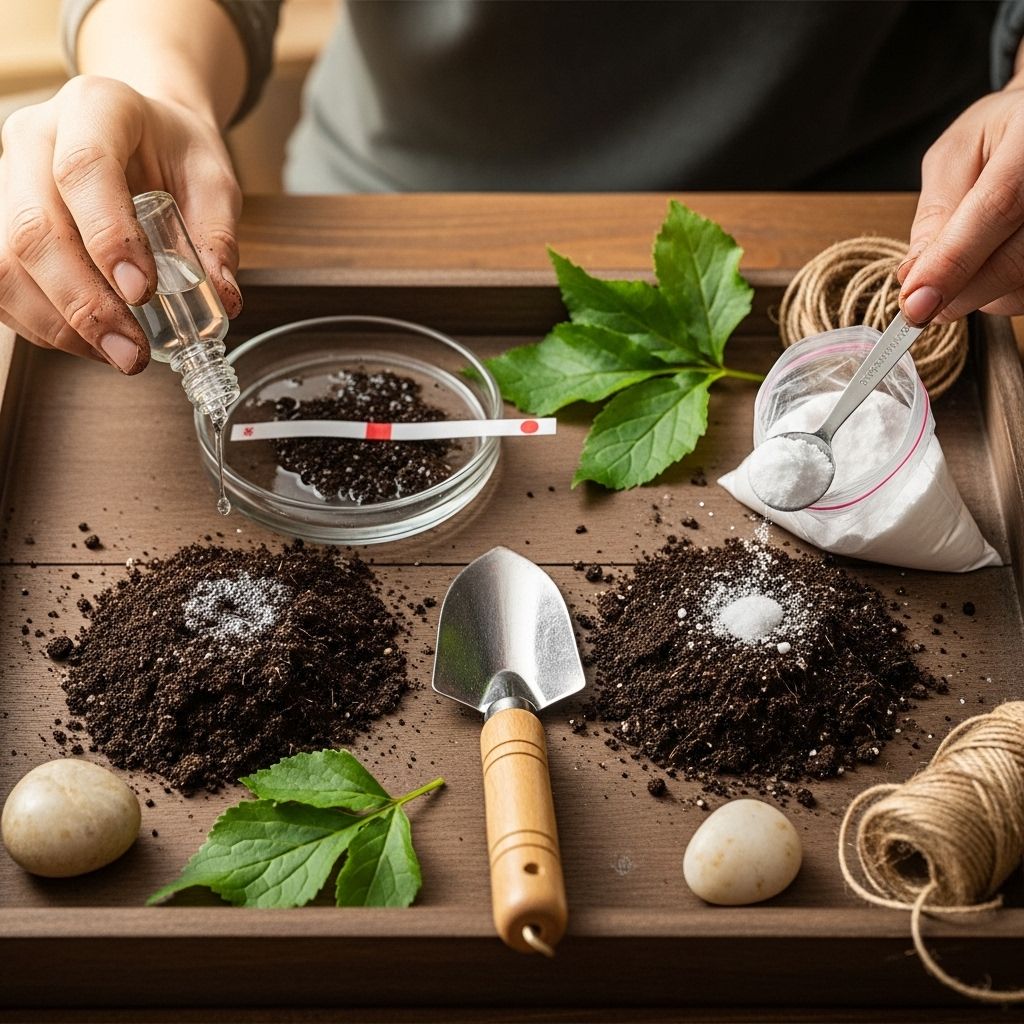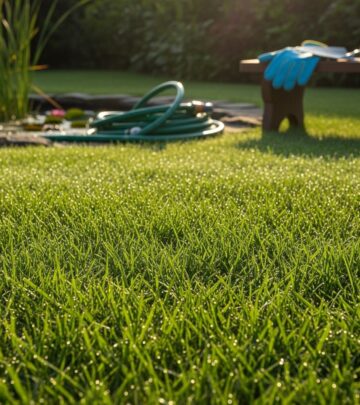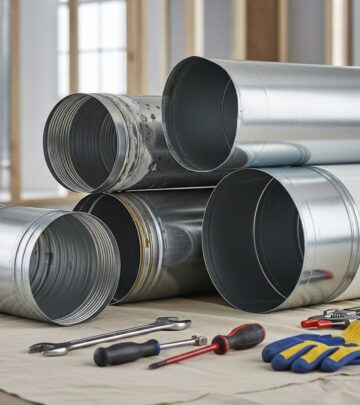DIY Soil pH Test: 2 Simple Household Methods For Garden Health
Discover simple, effective ways to measure earth’s acidity using everyday household items.

Image: HearthJunction Design Team
Introduction to Soil pH Testing
Soil pH is a crucial factor in gardening, as it directly affects plant growth and nutrient availability. Most plants thrive in slightly acidic to neutral soil pH, typically between 6.0 and 7.0. While commercial soil test kits are available, you can also use common household items like vinegar and baking soda for a DIY test. This method is easy, inexpensive, and provides a quick indication of whether your soil is acidic or alkaline.
Understanding Soil pH
Soil pH is measured on a scale from 0 to 14, with 7 being neutral. Values below 7 indicate acidic conditions, while values above 7 indicate alkalinity. Understanding your soil’s pH is essential for optimizing plant health and ensuring that nutrients are available to the plants.
Why Test Soil pH?
Testing soil pH helps gardeners in several ways:
–
Optimize Plant Growth
: Different plants have optimal pH ranges. For example, blueberries require acidic conditions (pH around 4.0 to 5.5), while most vegetables prefer a slightly acidic to neutral pH (around 6.0 to 7.0).–
Nutrient Availability
: Nutrient availability varies with pH. For instance, iron and manganese are more available in slightly acidic conditions, while calcium and magnesium are more available in alkaline conditions.–
Prevent Soil Degradation
: Continuous monitoring helps prevent soil degradation by identifying shifts in pH, which can be adjusted through amendments like lime or sulfur.Collecting Soil Samples
To get an accurate reading, it’s important to collect soil samples correctly. Here are the steps to follow:
- Depth and Location: Dig four to six inches below the soil surface using a hand trowel. Collect samples from several locations in your garden bed to get a representative average.
- Preparation: Break up clumps and remove rocks, sticks, and debris to ensure a uniform sample.
DIY Soil pH Test Using Vinegar and Baking Soda
This simple DIY method uses the chemical reaction between vinegar (acidic) and baking soda (alkaline) to indicate soil pH. The test involves two parts: testing for alkalinity with vinegar and testing for acidity with baking soda.
Testing for Alkalinity with Vinegar
To test if your soil is alkaline, follow these steps:
- Mix Soil and Water: Place 1 cup of soil in a clear container and add 1/2 cup of distilled water. Mix well.
- Add Vinegar: Add 1/2 cup of white vinegar to the mixture.
- Observe Reaction: If the mixture fizzes or bubbles, it indicates that your soil is alkaline. The more vigorous the reaction, the higher the pH level.
Testing for Acidity with Baking Soda
To test if your soil is acidic, follow these steps:
- Mix Soil and Water: Place 1 cup of soil in another clear container and add 1/2 cup of distilled water. Mix well.
- Add Baking Soda: Add 1/2 cup of baking soda to the mixture.
- Observe Reaction: If the mixture fizzes or bubbles, it indicates that your soil is acidic. The vigor of the reaction suggests the level of acidity.
Interpreting Test Results
Based on the reactions observed, you can determine the approximate pH range of your soil:
- Alkaline Soil: If the vinegar test shows a significant reaction, your soil is likely alkaline (pH above 7).
- Acidic Soil: If the baking soda test shows a reaction, your soil is likely acidic (pH below 7).
- Neutral Soil: If neither test produces a strong reaction, your soil is probably in the neutral range (pH around 7).
Limitations of the DIY Test
While the DIY vinegar and baking soda method is useful for a quick assessment, it has limitations. It doesn’t provide precise pH readings and may not account for variations in soil composition. For more accurate results, consider using a soil pH meter or sending a sample to a lab for analysis.
Adjusting Soil pH
Once you’ve determined your soil’s pH, you can adjust it if necessary. Here are some common methods:
- Lowering pH (Making Soil More Acidic): Add elemental sulfur or aluminum sulfate to lower the pH. This is especially useful for plants that prefer acidic conditions, like blueberries.
- Raising pH (Making Soil More Alkaline): Add lime (calcium carbonate) to raise the pH. This is beneficial for plants that prefer alkaline conditions, like asparagus.
Frequently Asked Questions (FAQs)
Q: Why is it important to test soil pH?
A: Testing soil pH is crucial for optimizing plant growth and nutrient availability. Different plants have optimal pH ranges, and adjusting the soil pH can improve plant health and productivity.
Q: How often should I test my soil pH?
A: It is recommended to test soil pH annually, especially if you notice changes in plant growth or apply amendments to adjust the pH. Regular monitoring helps maintain optimal conditions for your plants.
Q: Can I use other household items for pH testing?
A: While vinegar and baking soda are commonly used for DIY pH testing, other household items like lemon juice or baking powder are not recommended due to their variability in concentration and potential for inaccurate results.
References
- https://www.thespruce.com/how-to-test-soil-acidity-alkalinity-without-a-test-kit-1388584
- https://www.youtube.com/watch?v=OvWB86ngIds
- https://www.almanac.com/content/3-simple-diy-soil-tests
- https://homegrowncannabisco.community/t/how-to-ph-test-soil/1590
- https://www.tiktok.com/@theshilohfarm/video/7251632720604990766?lang=en
Read full bio of Srija Burman










